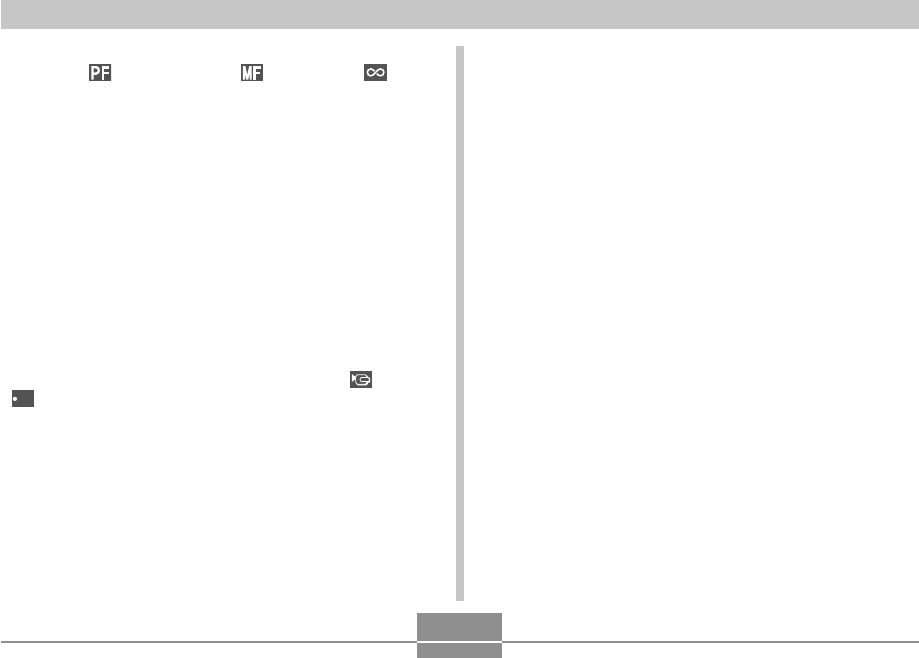
OTHER RECORDING FUNCTIONS
122
— Auto Focus is not performed in the case of the Pan
Focus ( ), Manual Focus ( ) and Infinity ( )
focus modes, and so no confirmation tone sounds. In
the case of the Manual Focus mode, you cannot adjust
focus settings while recording is in progress. Be sure
to make all adjustments before beginning the record
operation.
• Very bright light inside of an image can cause a vertical
band to appear in the monitor screen image. This is a
CCD phenomenon known as “vertical smear”, and does
not indicate malfunction of the camera. Note that vertical
smear is not recorded with the image in the case of a
snapshot, but it is recorded in the case of a movie.
• The movie recording capacity of built-in memory is very
small. Use of a memory card (page 203) is recommended
when recording movies.
• Certain types of memory cards take longer to record data,
which can cause movie frames to be dropped. and
REC
flash on the monitor screen during recording to let
you know when a frame has been dropped.
• Optical zoom is disabled during movie recording. Digital
zoom only is available. Make sure you select the optical
zoom setting you want to use before you press the
shutter button to start movie recording (page 63).
• The effects of camera movement in an image become
more pronounced when you record close ups or recording
with a large zoom factor. Because of this, use of a tripod
is recommended when recording close ups or recording
with a large zoom factor.
• Images may be out of focus if the subject is outside the
shooting range of the camera.
• Entering the Movie mode or MOVIE BEST SHOT mode
automatically changes the focus mode to Pan Focus
(page 84), regardless of the current mode memory’s
(page 140) Focus setting.
• Certain types of subjects are difficult to focus (page 79)
and may cause blurry images. If this happens, try
changing the focus mode to Manual Focus (page 85) or
Pan Focus (page 84).
• If images are out of focus when using Auto Focus, you
may be able to achieve proper focus by pointing the
camera at another subject momentarily.


















